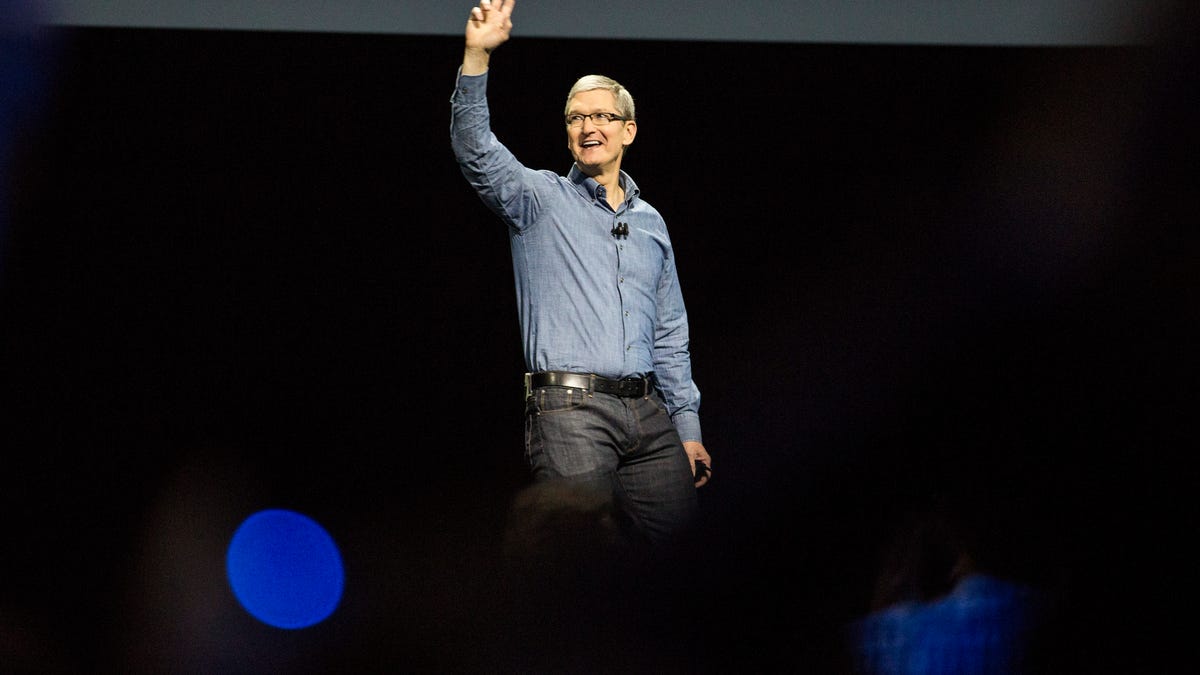Tim Cook sees a bigger future for AR than VR
Apple's CEO tells ABC News that augmented reality allows people to be more "present" than virtual reality.
As far as Tim Cook is concerned, people are going to be much more interested experiencing the world through an augmented-reality headset than holing up at home strapped to virtual-reality goggles.
That's a major takeaway from an interview Apple's CEO had with ABC News, published Wednesday, in which Cook said he saw bigger possibilities for AR than VR, since AR allows people to be more "present."
"There's virtual reality and there's augmented reality -- both of these are incredibly interesting," Cook said in the interview. "But my own view is that augmented reality is the larger of the two, probably by far."
Cook's preference could provide a clue into what Apple's been working on in the fields of AR and VR. Earlier this year, reports surfaced that Apple had hundreds of employees developing AR and VR headset prototypes, although neither tech showed up at its event last week. Following Cook's interview, it now seems more likely Apple would eventually come out with an AR-focused product -- if it ever does -- than a VR headset.
The central difference between the two technologies is that AR overlays digital images and data atop real-world videos. The best-known example of AR today is Pokemon Go, in which Pokemon characters appear on people's smartphone screens amid the streets or parks players are exploring. With VR, the experience is only digital images, so it can be much more immersive.
Virtual reality and augmented reality have become big focuses of the tech world, with most major tech companies -- including Samsung, Microsoft and Google -- racing to develop the technologies.
Cook still saw a lot of value in VR, too, saying in the interview that it could be useful for education and gaming.
"Virtual reality sort of encloses and immerses the person into an experience that can be really cool, but probably has a lower commercial interest over time," he said. "Less people will be interested in that."
In another part of the interview, Cook discussed tech in the classroom, AirPods and other topics.


